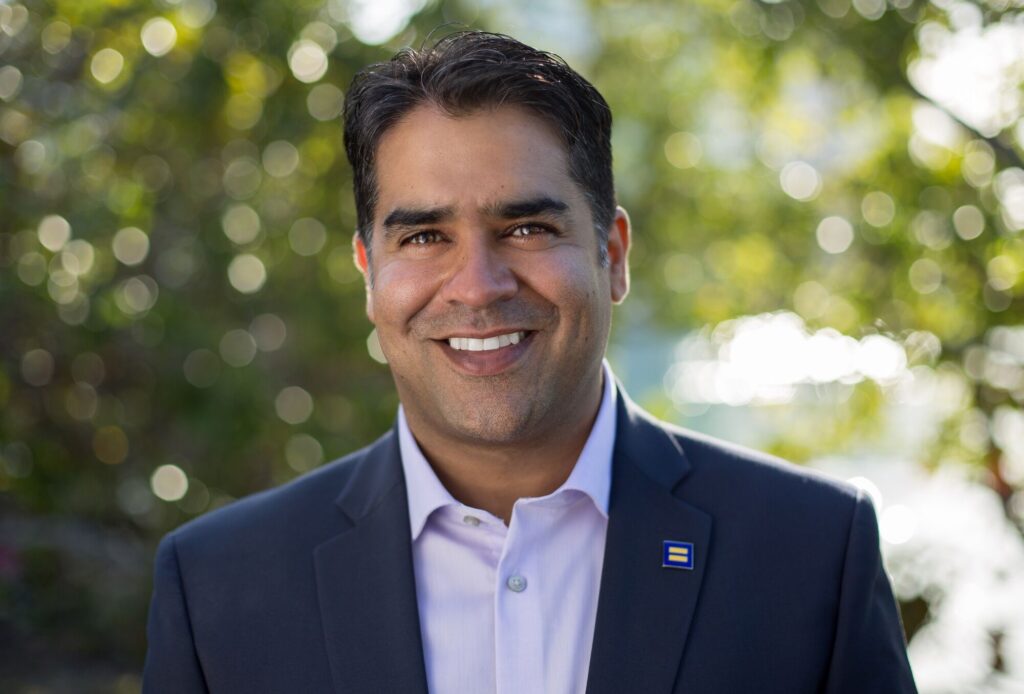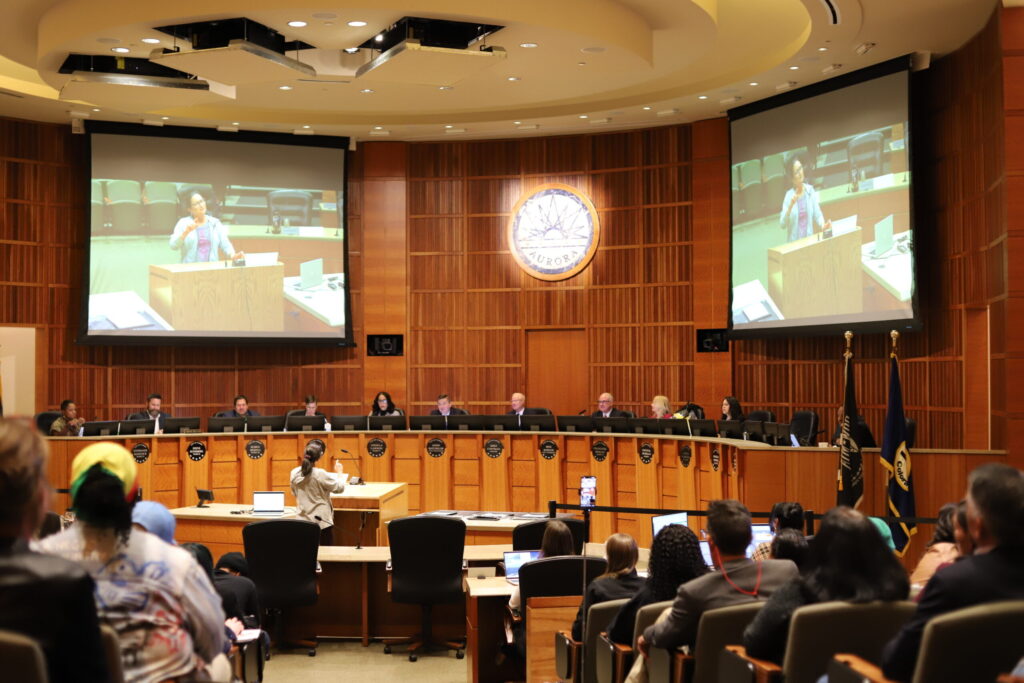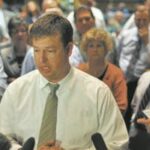Hick calls special session

Democratic Gov. John Hickenlooper on Thursday called a special session of the legislature to address civil unions legislation and six of the 30 other bills condemned to death after House Republicans allowed the bills to languish on the calendar before a midnight deadline on Tuesday. The highly criticized GOP strategy was purportedly aimed at killing a controversial proposal to allow same-sex couples to have similar legal protections as traditional married couples.
The civil unions bill, along with the six other bills, address everything from water construction projects and unemployment insurance, to penalties for driving under the influence of marijuana. They will be the substance of the special session scheduled to begin on Monday.

Hickenlooper said the bills were “narrow” in focus in the sense that there was a lack of debate on each of the measures because of the procedural maneuvers, while still having bipartisan support. Even the hot-button civil unions bill had the support of at least five House Republicans, which flies in the face of House Republican leadership, who have opposed the measure.
“We worked very hard to narrow it as much as we could so that we could focus on it,” the governor said at a Thursday afternoon press availability.
The seven bills that the Legislature has been called to act on include :
? Senate Bill 2, sponsored by Sen. Pat Steadman, D-Denver, and House Minority Leader Mark Ferrandino, D-Denver, which would authorize civil unions in Colorado;
? Senate Bill 177, sponsored by Sen. Cheri Jahn, D-Wheat Ridge, and Reps. Larry Liston, R-Colorado Springs, and Dan Pabon, D-Denver, which aims to help businesses lower their unemployment insurance tax rates;
? Senate Bill 165, sponsored by Sen. Gail Schwartz, D-Snowmass Village, and Rep. Randy Baumgardner, R-Hot Sulphur Springs, which would appropriate an estimated $54 million in funding for Colorado Water Conservation Board construction projects;
? Senate Bill 15, sponsored by Sen. Steve King, R-Grand Junction, and Rep. Mark Waller, R-Colorado Springs, which would create a separate DUI offense for driving under the influence of marijuana, as well as blood testing for THC levels associated with the crime;
? Senate Bill 182, sponsored by Sens. Bob Bacon, D-Fort Collins, and Shawn Mitchell, R-Broomfield, as well as by Rep. Tom Massey, R-Poncha Springs, which would create so-called “benefit corporations” in Colorado with the goal of attracting venture capital firms looking to invest in socially focused companies and bring new jobs to Colorado;
? Senate Bill 184, sponsored by Senate Minority Leader Bill Cadman, R-Colorado Springs, and Rep. Kevin Priola, R-Henderson, which aims to help owners of special mobile machinery in licensing requirements; and
? Senate Concurrent Resolution 1, sponsored by Steadman and Ferrandino, which would ask voters to repeal prior amendments in the state constitution because they have been ruled unconstitutional.
Hickenlooper acknowledged that some of the bills he is calling on the Legislature to reconsider aren’t exactly the sexiest topics, but he believes each is important for the economic growth, safety and sustainability of Colorado.
“We’re talking about over the next couple of years over $50 million worth of water projects, this is real. You’re from all over the state, you know how very real this is,” Hickenlooper addressed the media. “Issues around whether people with a fixed per se limit of THC in their system, whether they should be held accountable in terms of their driving; making sure that we have the appropriate funding capacity for unemployment insurance… we tried to, of the 30 bills that were there, we tried to limit it as much as possible to create in a timely manner as much room for conversation to make sure that all these bills get heard properly.”
The special session, at a cost of $23,500 per day, must last a minimum of three days if lawmakers are to record second- and third-reading votes. The session could, however, last longer, depending on how long it takes to debate and vote on the various pieces of legislation. The last time a special session occurred in Colorado was in 2006 when Republican Gov. Bill Owens called on the Legislature to address immigration issues.
A special session is treated almost like a completely new session of the General Assembly, meaning House Republican leadership, which controls the lower chamber, could re-configure committees and make new assignments. House Speaker Frank McNulty, R-Highlands Ranch, had not signaled as of Thursday evening what he intended to do with the bills, especially civil unions, the centerpiece of the drama that caused the special session. It is entirely possible that the bill could face certain death in a committee configured with a majority of opposition, or it could make it to the floor and face the same filibustering and procedural games.
It is unclear exactly how many lawmakers will be back for the special session, but several may be absent because of vacation and other plans that had been scheduled prior to the governor’s announcement, according to legislative leadership.
GOP blames Dems for ‘cluttered’ special session
McNulty met with the Capitol press corps about an hour before the governor’s news conference. He was unwilling at the time to speculate on the bills Hickenlooper would signify as part of the special session. The Speaker was unavailable to comment on the special session following Hickenlooper’s 3 p.m. announcement, but he offered this prepared statement: “Reviewing Gov. Hickenlooper’s release, it’s clear that he cluttered his call for a special session with bills that could have passed yesterday with bipartisan support. The governor has every right to call a special session, but let’s be clear – if the goal of this session is to pass bills that had broad, bipartisan support, we could have done that yesterday.”
As the House met for its last time of the regular legislative session on Wednesday night, House Republicans attempted to convince Democrats in both chambers to attach some of the lost bills to others so that they could be considered before the midnight deadline. They said there was a lack of motivation on the Democrats’ part to do so, speculating that Democrats wanted the special session to include more than just civil unions legislation in an attempt to “legitimize” the call.
“I viewed it as a smokescreen to legitimize the special session,” said Rep. Jerry Sonnenberg, R-Sterling. “I don’t have a problem with doing a special session on civil unions, but then let’s do a special session on civil unions and not use taxpayer dollars on work that should have been done yesterday, that could have been done yesterday.”
House Minority Leader Mark Ferrandino, D-Denver, shrugged off the accusations, arguing that the bills did not have companion bills with similar titles appropriate for amendments. He also pointed out that a special session likely would not have occurred had Republicans not delayed civil unions, thus condemning the legislation to death.
“We would be in a totally different place if the Speaker and majority leader didn’t play games on Tuesday night and they allowed the democratic process to work,” said the minority leader. “So now that they’re looking back at it and saying, ‘Oh, we’re going to have a smokescreen,’ this would have never been an issue if they did the right thing and let the democratic process work.”
Hickenlooper also said that lawmakers needed to find appropriately titled bills in which to attach amendments, otherwise the measures would have likely faced litigation.
“I’m not a lawyer or a lawmaker, but I do know that… we’ve seen a lot of examples of bills that have been lost coming out if you put a wrong bill into a title that doesn’t fit,” said Hickenlooper. “I trust the legislature to figure that out.”
Sponsors and staff frantically scrambled on Wednesday to find bills with related titles to attach the measures onto as amendments for the Senate to vote on in order to save the eight pieces of legislation. The last-minute effort to resurrect the bills was encouraged by Hickenlooper on Wednesday, though he acknowledged that a significant amount of the work would require a special session.
McNulty was also clear that House Republicans were on board with resurrecting as many of the bipartisan supported bills as possible.
“We are working diligently with one another to accommodate that and I suspect that we will be able to get most, if not all of the identified issues taken care of in one form or another…” McNulty said on Wednesday. “Today is something that both Republicans and Democrats in the Statehouse ought to take credit for. The attitude that both parties have come back with, and the legislative leadership that is being shown now on the part of both parties is commendable.”
In a show of cooperation between the two legislative chambers, the Senate accommodated the House by allowing the eight Senate measures to be tacked on as amendments to House bills that were being considered by the Senate on Wednesday. Those bills included:
? Senate Bill 46, sponsored by Sens. Linda Newell, D-Littleton, and Evie Hudak, D-Westminster, as well as by Reps. B.J. Nikkel, R-Loveland, and Claire Levy, D-Boulder, which would bring sweeping school discipline reform to the state, was added to House Bill 1345, a measure to finance public schools;
? Senate Bill 47, sponsored by Sens. Keith King, R-Colorado Springs, and Bob Bacon, D-Fort Collins, as well as by Reps. Tom Massey, R-Poncha Springs, and Chris Holbert, R-Parker, which would require basic skills placement or assessment tests in public schools, was also added to HB 1345;
? Senate Bill 172, sponsored by Sens. Mike Johnston, D-Denver, and Nancy Spence, R-Centennial, as well as by Massey and Rep. Millie Hamner, D-Dillon, which would direct the state to join a consortium of states to develop common assessments in reading, writing and math, was added to House Bill 1240, a measure to bring comprehensive statutory changes to K-12 education;
? Senate Bill 28, sponsored by Sen. Kevin Grantham, R-Cañon City, and Rep. Mark Barker, R-Colorado Springs, which would offer more flexibility in sentencing juveniles convicted of serious crimes, was added to House Bill 1310, an omnibus bill that makes changes to numerous procedural criminal law statutes;
? Senate Bill 116, sponsored by Sen. Joyce Foster, D-Denver, and Rep. J. Paul Brown, R-Ignacio, which would criminalize Bath Salts as an illicit substance, was also added to HB 1310;
? Senate Bill 104, sponsored by Sen. Pat Steadman, D-Denver, and Rep. Brian DelGrosso, R-Loveland, which would consolidate three funding sources for substance abuse treatment into one correctional treatment fund, was also added to HB 1310;
? Senate Bill 163, sponsored by Mitchell and Steadman, as well as by Levy and Rep. Don Beezley, R-Broomfield, which would reduce penalties for certain drug possession offenses, was also added to HB 1310; and
? Senate Bill 164, sponsored by Rep. Keith King and Sen. Rollie Heath, D-Boulder, as well as by Massey and Rep. Nancy Todd, D-Aurora, which would make several statutory changes concerning the authorization of private postsecondary institutions, including colleges, universities, seminaries and bible colleges, was added to House Bill 1155, a measure that would clarify the Colorado Commission On Higher Education’s authority to adopt a remedial education policy and offer the commission flexibility in crafting the remediation system.
The governor was careful not to assign any blame for calling the special session. “When you start criticizing somebody, you often times, not always, but often times lose traction in your ability to persuade…”
– Peter@coloradostatesman.com













